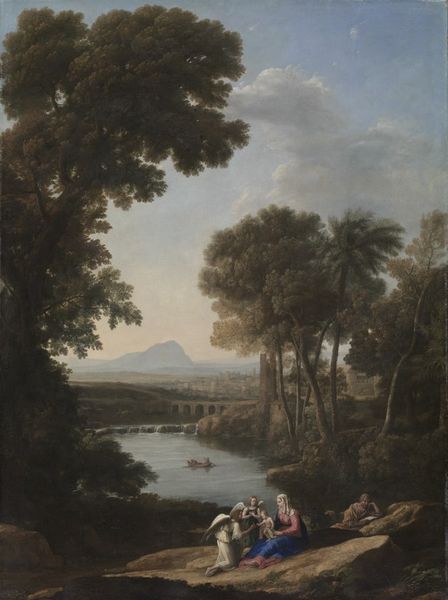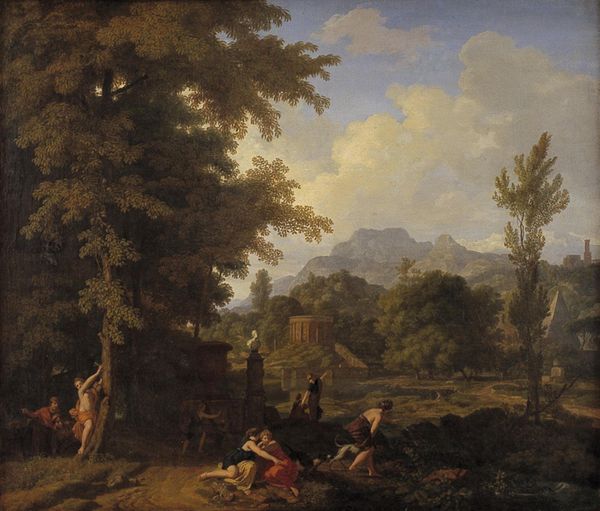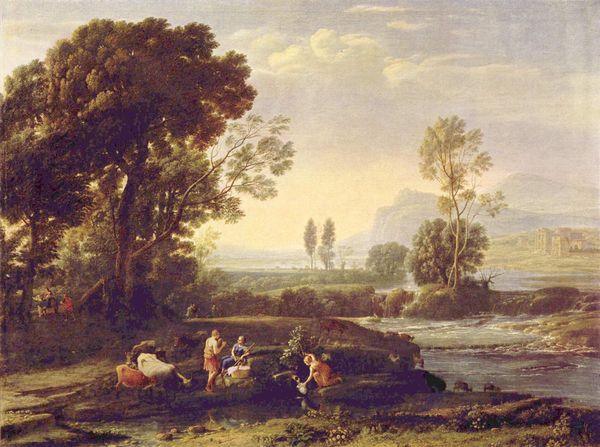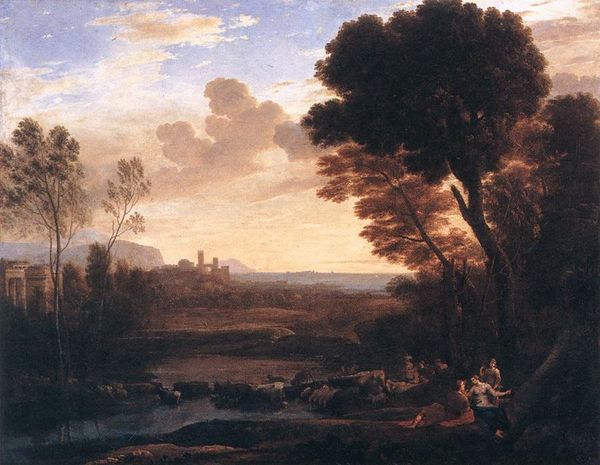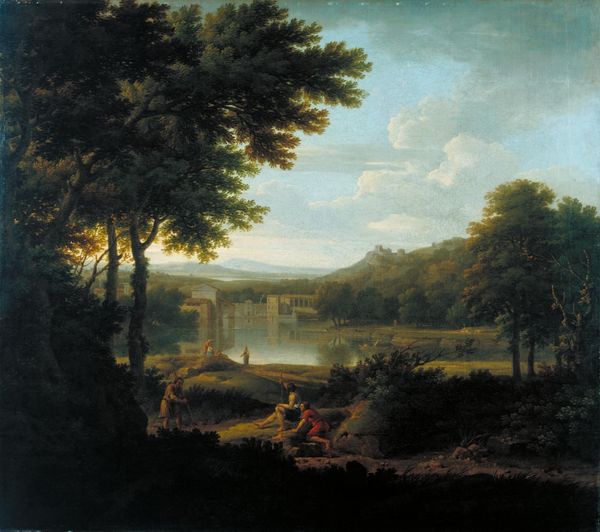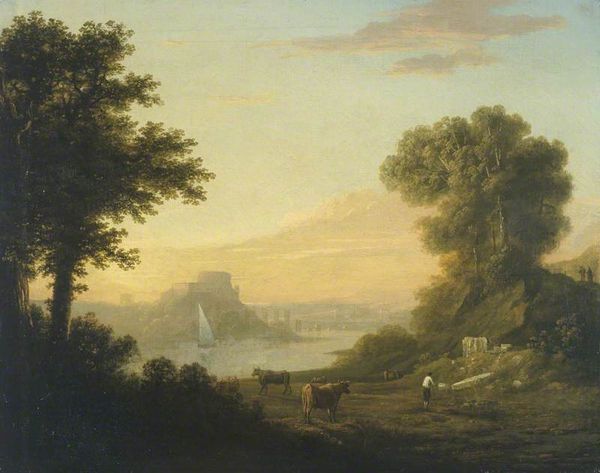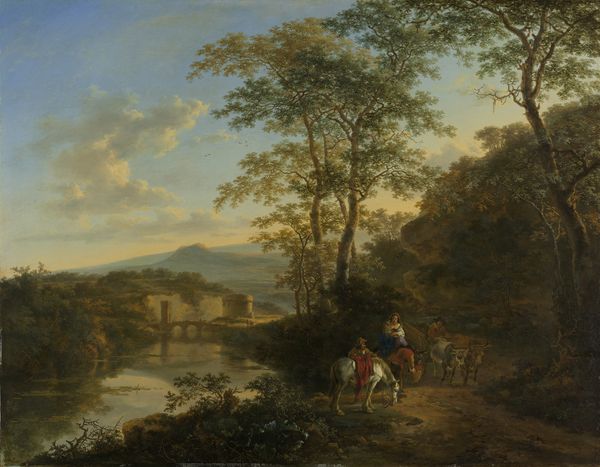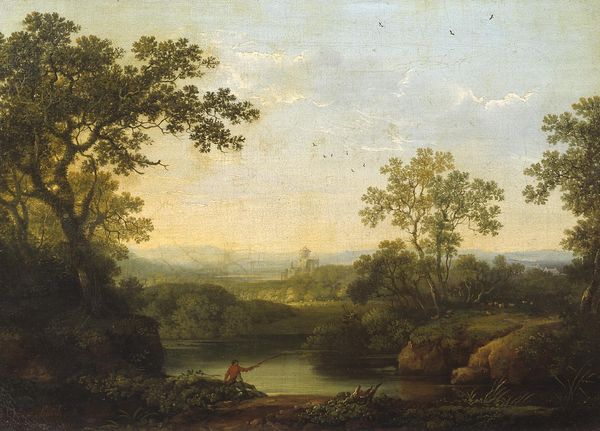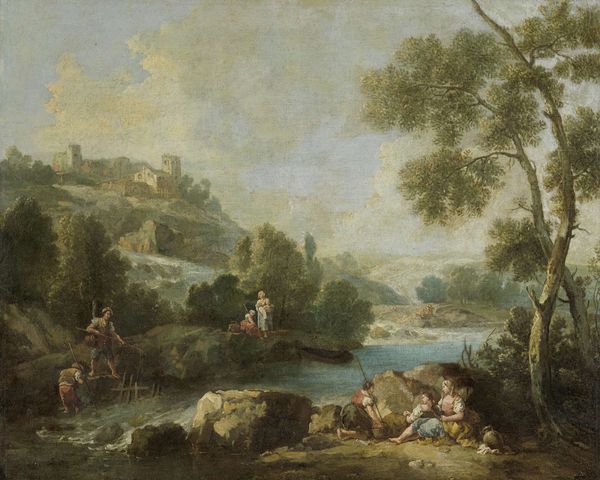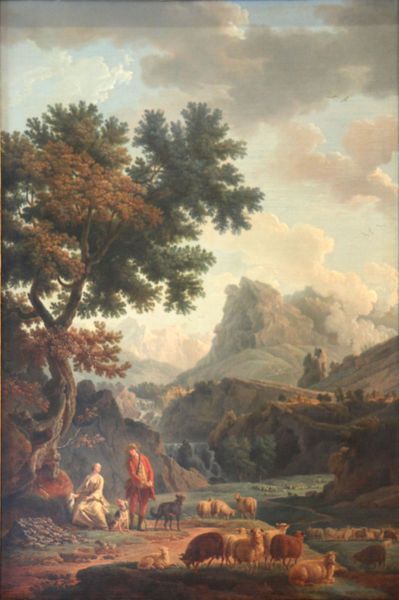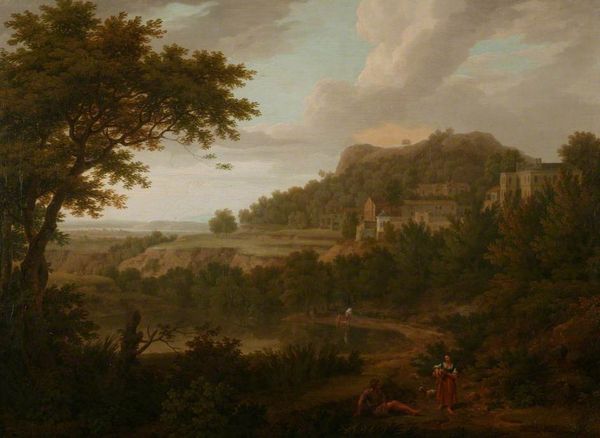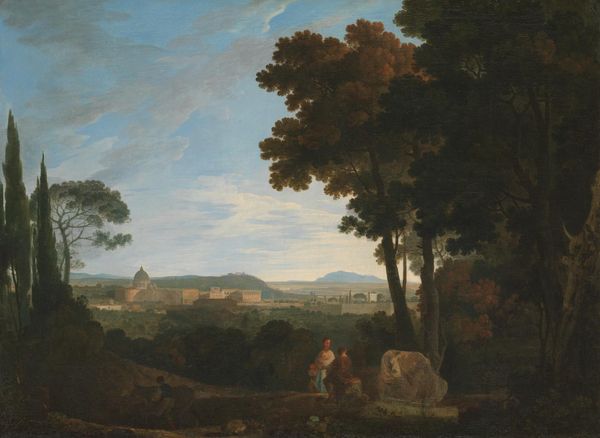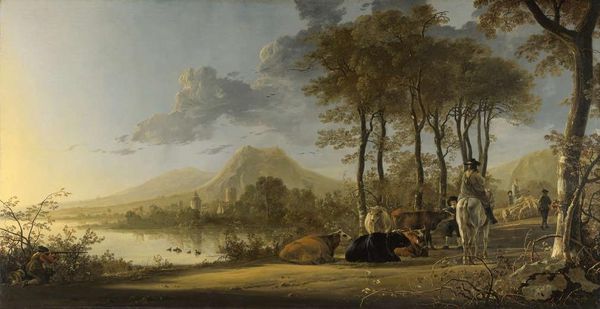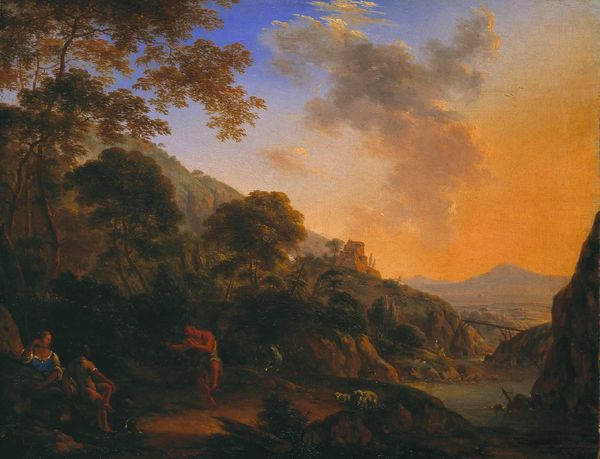
painting, oil-paint
#
tree
#
sky
#
allegory
#
baroque
#
painting
#
oil-paint
#
landscape
#
oil painting
#
underpainting
#
christianity
#
men
#
painting painterly
#
history-painting
Dimensions: 138 x 209 cm
Copyright: Public domain
Claude Lorrain painted "Landscape with the Finding of Moses" during the 1600s, using oil on canvas. This work, like many of Claude's landscapes, presents an idealised vision of nature, but in this case it has strong political undertones. The figures in the foreground enact a biblical scene but they are dwarfed by an imposing landscape. The grandeur of nature emphasizes a sense of divine order. In Claude’s era, this aesthetic was used to affirm social hierarchies. Made in Rome, a city steeped in classical and Christian history, Claude’s work reflects the power of the Catholic Church and the aristocracy, institutions that supported and shaped artistic production. His paintings, collected by the elite, reinforced their status and worldview. Understanding Claude requires us to look beyond the canvas. By studying the social and institutional contexts of his work, we can see how art was, and continues to be, embedded in webs of power and meaning.
Comments
No comments
Be the first to comment and join the conversation on the ultimate creative platform.
